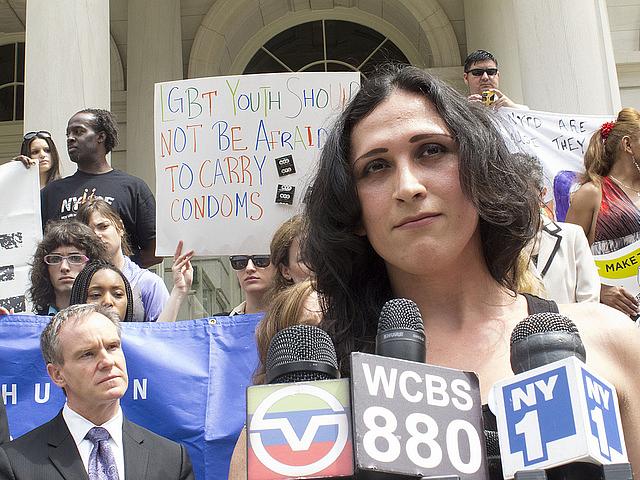Climbing the learning curve while covering transgender health

When I was asked by an editor to write about transgender health in late 2016, I was delighted by the opportunity, then immediately terrified I would do it all wrong. I'd read both praise and fierce takedowns of journalists’ earnest-appearing work on transgender issues. It seemed so easy to cause harm by covering the community insensitively, even with the best of intentions.
I devised a little crash course in trans issues for myself, starting with informational interviews with local and national transgender advocacy organizations. I asked the same questions of everyone I talked to: What are the biggest challenges facing the transgender community right now? And what important trans issues are the mass media missing?
Because language matters a lot when covering transgender issues, I read and reread the GLAAD media guide and several FAQs on transgender issues and people (the National Center for Transgender Equality, NCTE, and GLAAD both have good ones), browsed the NCTE's issues guide, and skimmed the guidelines on transgender health care published by UC San Francisco and World Professional Association for Transgender Health. I searched the scientific literature for review articles and editorials on transgender health issues and reached out to their lead authors for quick chats. I sought out thoughtful writing on the issue, and began following several prominent transgender activists on Twitter.
While these were useful strategies, the most eye-opening portion of my education took place when I attended a local conference on transgender health. Until that point, I hadn't realized the different perspectives within the transgender community on issues I thought had broad consensus. And in the course of conversations with transgender people from a broad range of backgrounds, affiliations, and professions, I developed a group of outspoken contacts who continually educate me about their community's priorities. They trust my questions are in service to a story, not my own curiosity, and they know I care about accurately representing their community and its challenges.
Most importantly, in listening to transgender people talk, I began to understand what was at stake for them. To live as their authentic selves, people had risked jobs, families, community ties, and their own health. I began to see patterns in the strategies people had developed to work around the barriers they faced — and I began to question where those barriers came from, why they persisted in some places and not in others, and who was working on dismantling them.
It was in examining these barriers that I began to find stories. And it's where you should be looking for them, too.
Although it's a good idea to ask your local transgender advocates what's missing from media coverage of their community, a few issues in transgender health are universally under-covered, and representative stories can be found almost anywhere.
The most eye-opening portion of my education took place when I attended a local conference on transgender health. Until that point, I hadn't realized the different perspectives within the transgender community on issues I thought had broad consensus.
Because section 1557 of the Affordable Care Act prohibits most insurers from denying coverage for transition-related care and appropriate preventive care based on gender identity, threats to the ACA are direct threats to transgender people's access to health care. If the ACA is substantially changed, insurance provider discrimination on the basis of gender identity will be a real concern for transgender people nationwide. Keep an eye on it.
As the national media tries to better understand America outside large urban areas, we're finding many unanswered questions about challenges particular to rural transgender people. Already-large health care disparities between urban and rural residents are magnified in the transgender population, which experiences high rates of depression, anxiety, smoking, alcohol and drug use, violence, and suicides. Stories that seek to understand the experiences of rural transgender people as they interact with primary care providers, specialists, pharmacists, and other health care providers can help call attention to systematic issues in a relatively data-free zone.
We also need to better understand what's working to provide preventive, primary care and transition-related care to this population. Ask the larger transgender health care organizations in your state's urban areas if and how they're reaching out to rural populations.
The medical field has heard the call for better access to transgender care, and medical schools have responded by increasing medical education on transgender issues. However, the residency programs that train primary care doctors, endocrinologists, gynecologists, and surgeons who will eventually provide care to transgender people haven't formalized any systematic changes to their educational programs.
Programs affiliated with academic centers that care for large transgender populations are more likely to train residents and fellows, as well as other health professions, to provide appropriate care for trans individuals. But we don't know to what extent graduate medical training includes transgender education, and if it does, whether that's changing access to care on a local or state level.
Whatever aspect of transgender health you write about, don't let anyone tell you it’s advocacy journalism to cover the transgender community under the assumption that transgender people should have equal rights in private and public spaces.
[Photo by G F via Flickr.]

